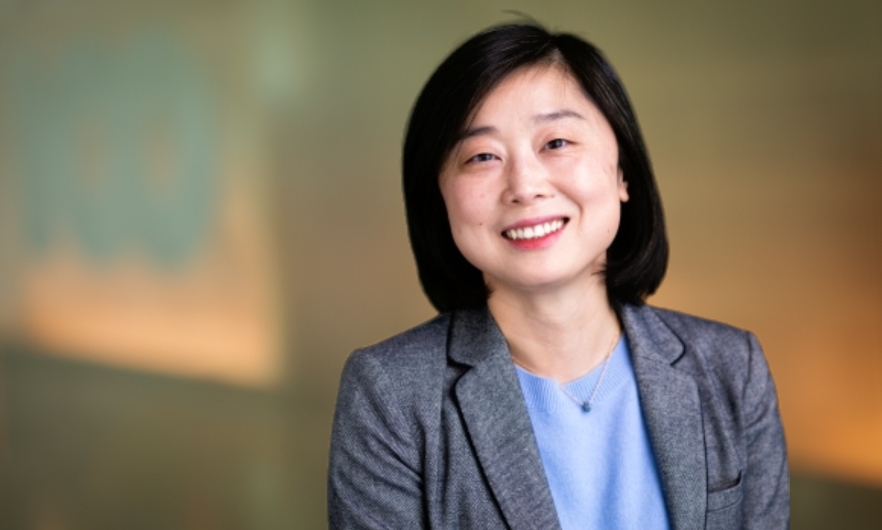Faculty Spotlight: Jiangxia Wang, MS
Jiangxia Wang, MS, associate scientist in the Department of Biostatistics and associate director for the Johns Hopkins Biostatistics Center, answers questions about her work.

Jiangxia Wang began her career in the financial industry before joining the Johns Hopkins Biostatistics Center in 2009. Currently, Jiangxia is the associate director of the Biostatistics Center and an associate scientist in the Department of Biostatistics, where she teaches and provides statistical consulting to advance research in public health and medicine.
This fall, Jiangxia co-founded the Statistical Practice & Research Collaboration (SPARC) Working Group, which aims to harness the extensive knowledge and experience of Biostatistics faculty, as well as Johns Hopkins and Bloomberg School of Public Health collaborators, to improve statistical practices and research collaborations, and to prepare students for a successful career in academia, government, or industry.
How long you have been at the Bloomberg School of Public Health? What led you to join Bloomberg?
I have been here for 15 years. Before I joined, I worked in the financial industry where my training was in applied mathematics and economics. A very unique opportunity arose for me in 2009 to work as a statistical consultant at the Johns Hopkins Biostatistics Center and I was intrigued by the wide range of interesting collaborations.
What do you like best about working at Bloomberg?
I really enjoy the work at the Biostatistics Center because we have the opportunity to collaborate with researchers all over Hopkins. It’s really a privilege to work alongside the top researchers in different areas; they are very dedicated, it's almost infectious. You know that the hard work you do will be translated into treatments or better practices that will advance medicine and public health.
What are your research interests?
I have two primary research interests. One is to look into the biomarkers that can be early indications of Alzheimer's disease and Parkinson's disease, so they can be detected and treated at the earliest stage. My other focus is examining the disparities in the care and the detection of some eye diseases. I do this through my collaboration with researchers in the Johns Hopkins Department of Neurology and ophthalmologists from the Wilmer Eye Institute.
What drew you to biostatistics and public health?
Compared to my work in the financial industry, I feel the work we do here at Bloomberg is much more rewarding. For example, it is very fulfilling for me to think about that the work I do will be able to help the early detection of Alzheimer's disease, which is a condition that affected my grandma, and I know firsthand what kind of impact it can bring to the entire family. There are so many people that can benefit from the research done here.
Where do you see your area of study going in the next five years?
Hopefully with the research we do for Alzheimer's disease we will be able to detect the disease earlier to see whether there is something that can be done to postpone the progression to cognitive impairment for people who are likely to develop this condition.
For our research in ophthalmology, we really hope that we can help uncover the disparity among gender, race, and ethnicity to make sure everyone can have equitable access to care and treatment and reduce the complications brought by disparity in care.
What class(es) do you teach?
This is my eighth year teaching the Practice of Statistical Consulting course to ScM students. It has been rewarding to teach students about statistical consulting; to show them what's involved in collaboration and how to contribute more when they work with researchers from other disciplines.
I also help with some of the courses in the School of Medicine. It's been fun to show medical students and residents how to use statistics properly in their medical research.
What would you say to a person considering a career in biostatistics?
If you enjoy interdisciplinary science and applying your quantitative skills to help people advance their research, biostatistics will be an extremely rewarding career.
